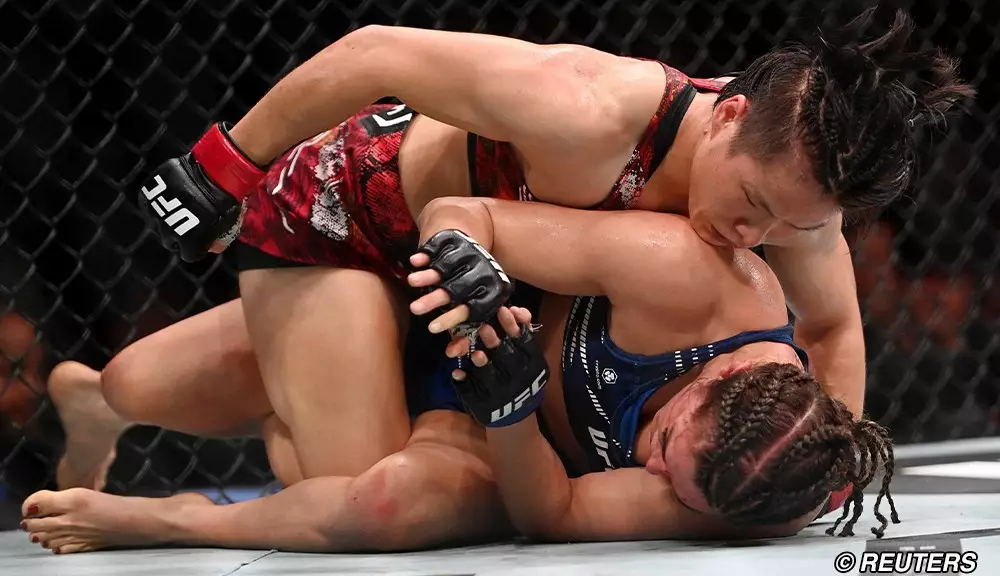In a sport as unpredictable as mixed martial arts, even seasoned experts can be taken aback by the betting lines set before a bout. This was evident when Daniel Cormier, a renowned figure in the MMA community, expressed his astonishment over Zhang Weili being labeled the underdog in her fight against Tatiana Suarez at UFC 312. The betting odds not only set the stage for an intriguing narrative but also reflected a misunderstanding of Weili’s skill set and competitive history. Cormier’s reaction underscores the inconsistency often seen in public perception versus actual performance, particularly regarding fighters with varied yet impressive track records.
Set in the vibrant Qudos Bank Arena in Sydney, the highly anticipated co-main event did not disappoint. Zhang Weili showcased her exceptional prowess, obliterating Suarez through a unanimous decision victory. Beyond an early slip where she was taken down in the first round, Weili demonstrated why she holds a title in the strawweight division. With over ten minutes of control time, she solidified her reputation not only as a skilled striker but also as an adept grappler—a combination that left Suarez, who came into the fight praised for her wrestling ability, struggling to gain traction.
In the wake of Weili’s commanding performance, Daniel Cormier emphasized the importance of understanding a fighter’s full portfolio. He questioned the logic behind the bookmakers’ assessment that favored Suarez, recalling Weili’s past defeats. While previous losses to Rose Namajunas may have played a role in shaping perceptions, they do not account for Weili’s evolution in the ring. Since those setbacks over three years ago, she has scored an impressive string of five consecutive victories, reaffirming her status at the pinnacle of the sport.
Cormier further articulated that while Namajunas and Suarez can both excel on the ground, the striking threat they pose is distinctly different. Namajunas, a former champion, combines her grappling skills with a striking arsenal that can incapacitate opponents, setting her apart from Suarez. What unfolded in the Octagon was a testament to Weili’s enduring adaptability and resilience; she executed strategic takedowns and reversed positions flawlessly, proving her critics wrong once and for all.
As the dust settles after UFC 312, the implications of Weili’s performance ripple through the strawweight division. By highlighting the flaws in Suarez’s game plan and exposing limitations in her grappling, Weili has re-established herself as not just a champion but as a formidable force in the landscape of women’s MMA. Furthermore, as fans and analysts recalibrate their perceptions around the division’s fighters, the narrative surrounding this bout could redefine future matchups and betting odds. Ultimately, Zhang Weili’s victory serves as a powerful reminder that betting lines and expert opinions can sometimes overlook the tenacity and skill of a champion willing to rise to any occasion.

